Supplies for Phugtal Monastery by Andrew Newey.
Each month, The Independent Photographer runs a new photo competition judged by an expert in the field.
In this case, Canadian-born documentary, travel, and action sports photographerJody MacDonaldstepped up to judge the competition.
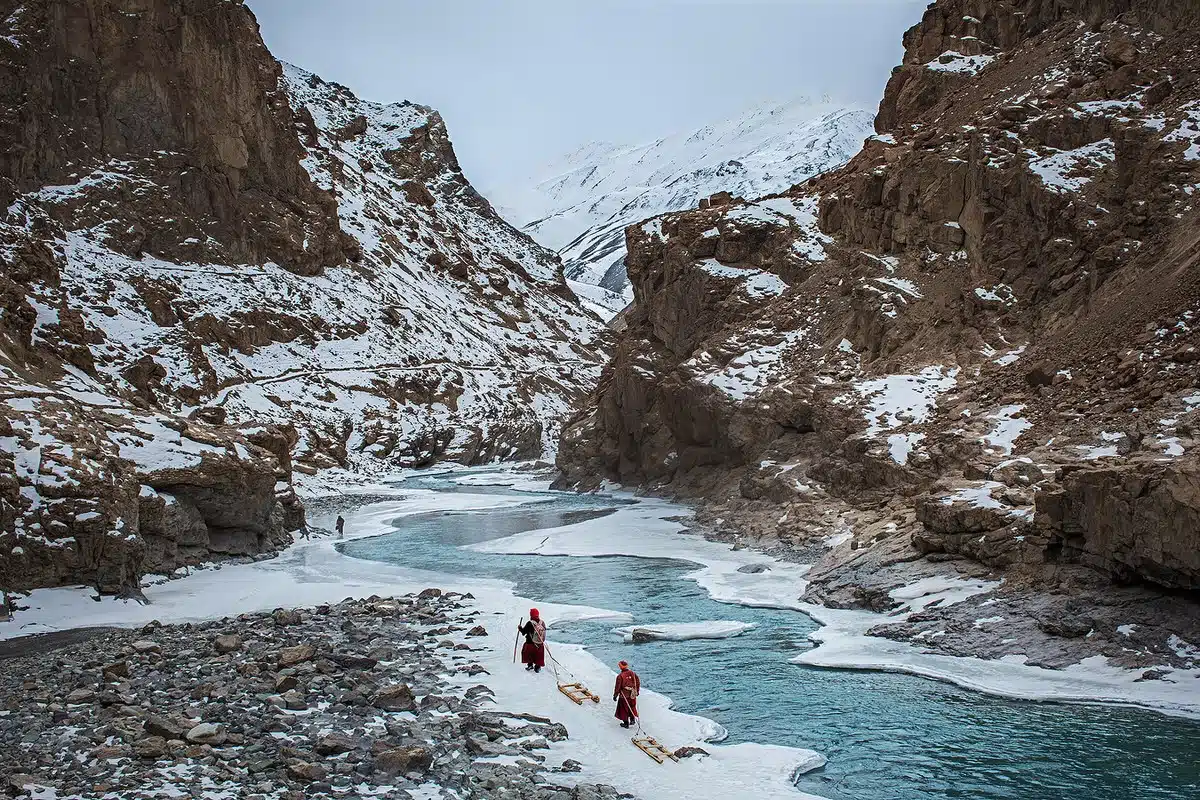
“Supplies for Phugtal Monastery” by Andrew Newey. First Prize.Location: Ladakh, Northern India“Phugtal is a Buddhist monastery located in the remote Lungnak Valley in south-eastern Zanskar, in the Himalayan region of Ladakh, in Northern India. During the winter, when deep snow makes roads impassable, the frozen rivers in the Zanskar region are used to transport vital supplies to the remote monasteries.”
PhotographerAndrew Neweytook home the top prize for his stunning image taken in the remote Himalayan region of Ladakh.
At first glance, it seems to be a standard landscape with snow-capped mountains and a partially frozen river.
See more of the powerful winners and finalists below.
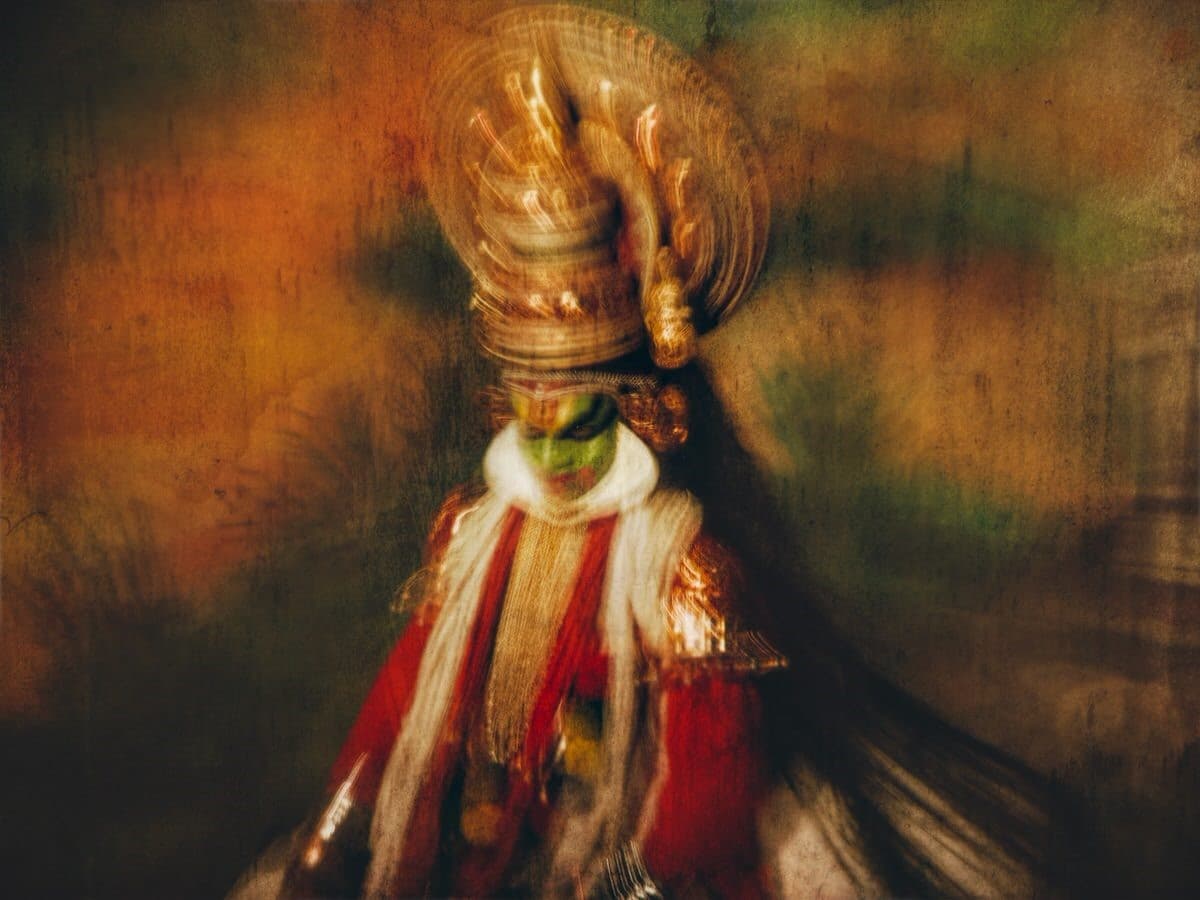
“Kathakali” by Thaddäus Biberauer. Second Prize.Location: Kerala, India“In Kerala, near Munnar, we eagerly purchased tickets for a traditional Kathakali show, curious about what awaited us. As the performance unfolded on stage, we were entranced by the elaborate costumes and mesmerizing artwork.”
Kathakali by Thaddaus Biberauer.
As the performance unfolded on stage, we were entranced by the elaborate costumes and mesmerizing artwork.
Candid scene at Lake Taungthaman by David Keith Brown.
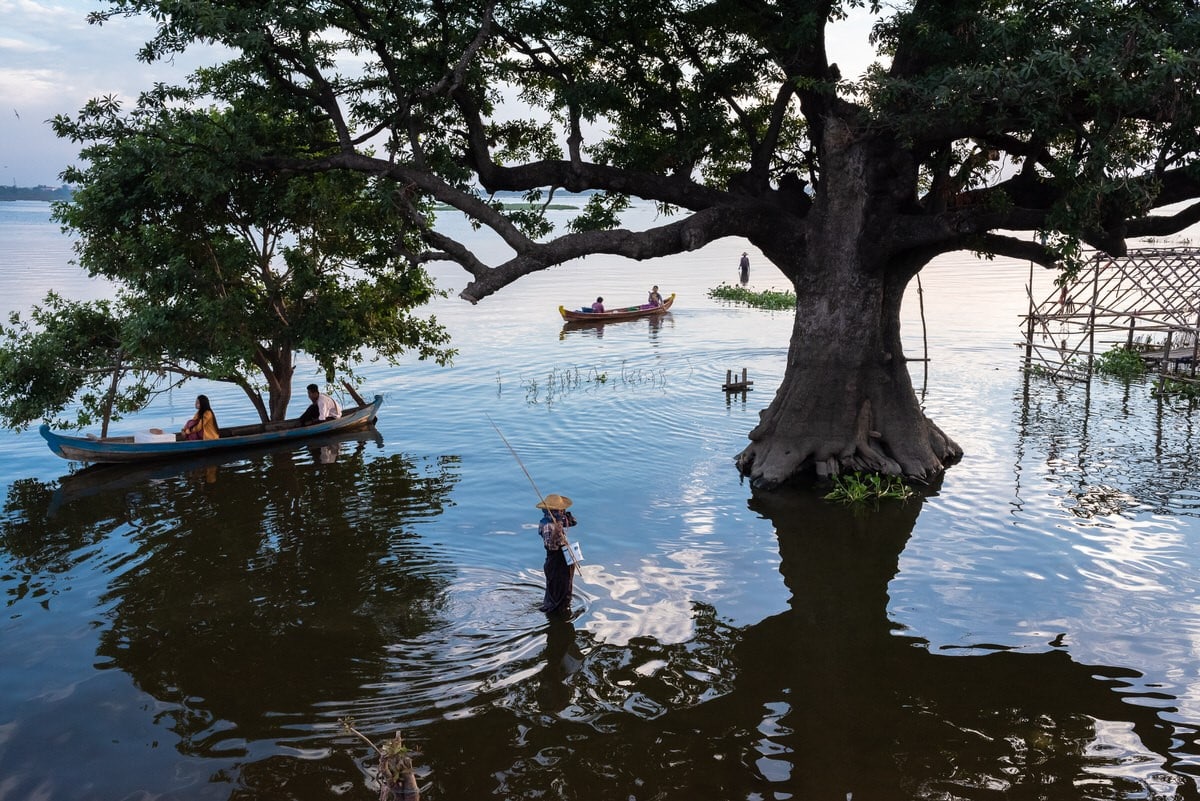
“Candid scene at Lake Taungthaman” by David Keith Brown. Third Prize.Location: Amarapura, Myanmar“Early evening view of people boating on Lake Taungthaman from the U Bein Bridge, Amarapura, Myanmar. Taungthaman Lake is located in Amarapura near Mandalay, Myanmar. The famous U Bein Bridge spans across this lake. One of the most iconic sights in Amarapura, fishermen can be obseerved wading waist-deep in the muddy water in search of fish in this iconic landscape.”
Taungthaman Lake is located in Amarapura near Mandalay, Myanmar.
The famous U Bein Bridge spans across this lake.
Breakfast time at Phuktal Gompa by Andrea Peruzzi.
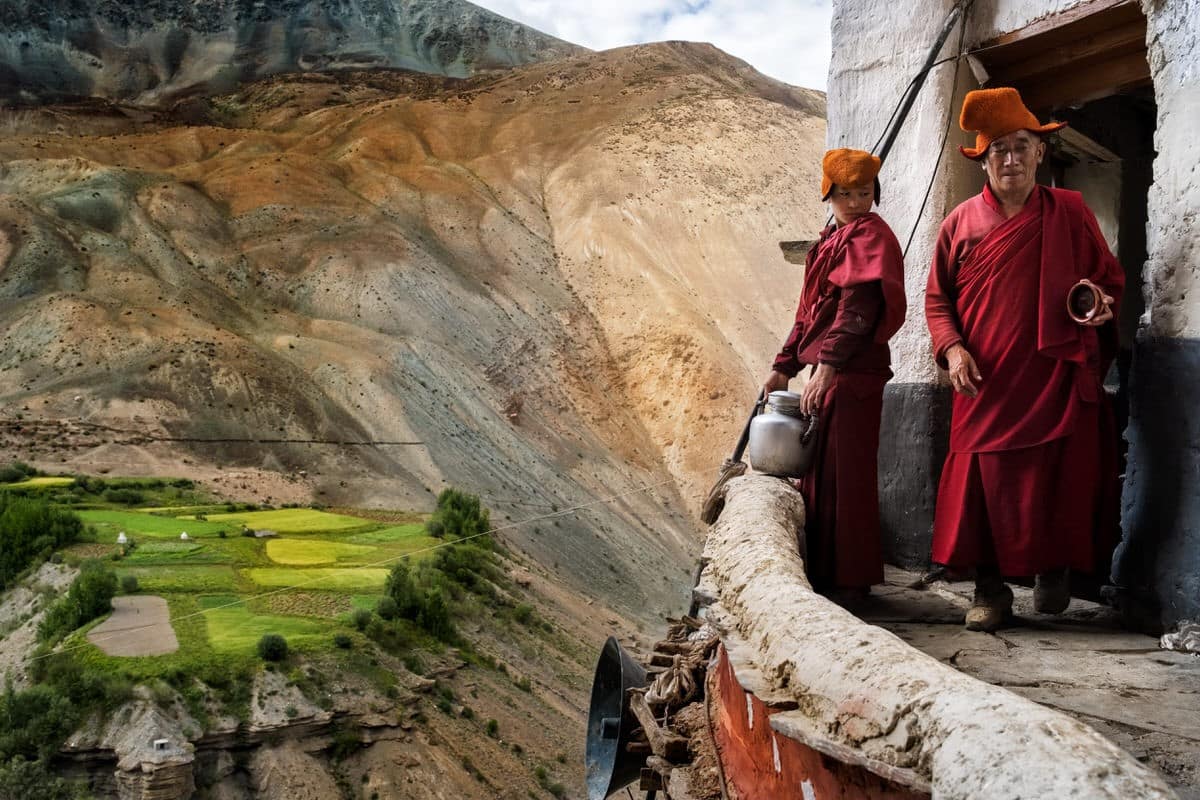
“Breakfast time at Phuktal Gompa” by Andrea Peruzzi. Finalist.Location: Ladakh, Northern India“In the remote Phuktal monastery, a young monk awaits the arrival of Master Lamas to begin serving breakfast. Every morning, at the end of the Puja ritual and before starting the monastic lessons, the young monks prepare the food to be shared all together on the terrace overlooking the valley below, nestled between the Himalayan heights of the Zanskar valley. Given the advanced age of the few lamas in the monastery, the small school in the structure, which sees some children from the nearby village studying to become monks, is the hope of survival of the monastery and local religious traditions.”
Infinite Loop by Barry Crosthwaite.
Initially built to harvest rainwater and provide access to groundwater, they evolved into architectural marvels and communal spaces.
Stepwells facilitated water storage in arid regions, crucial for agriculture, drinking, and rituals.
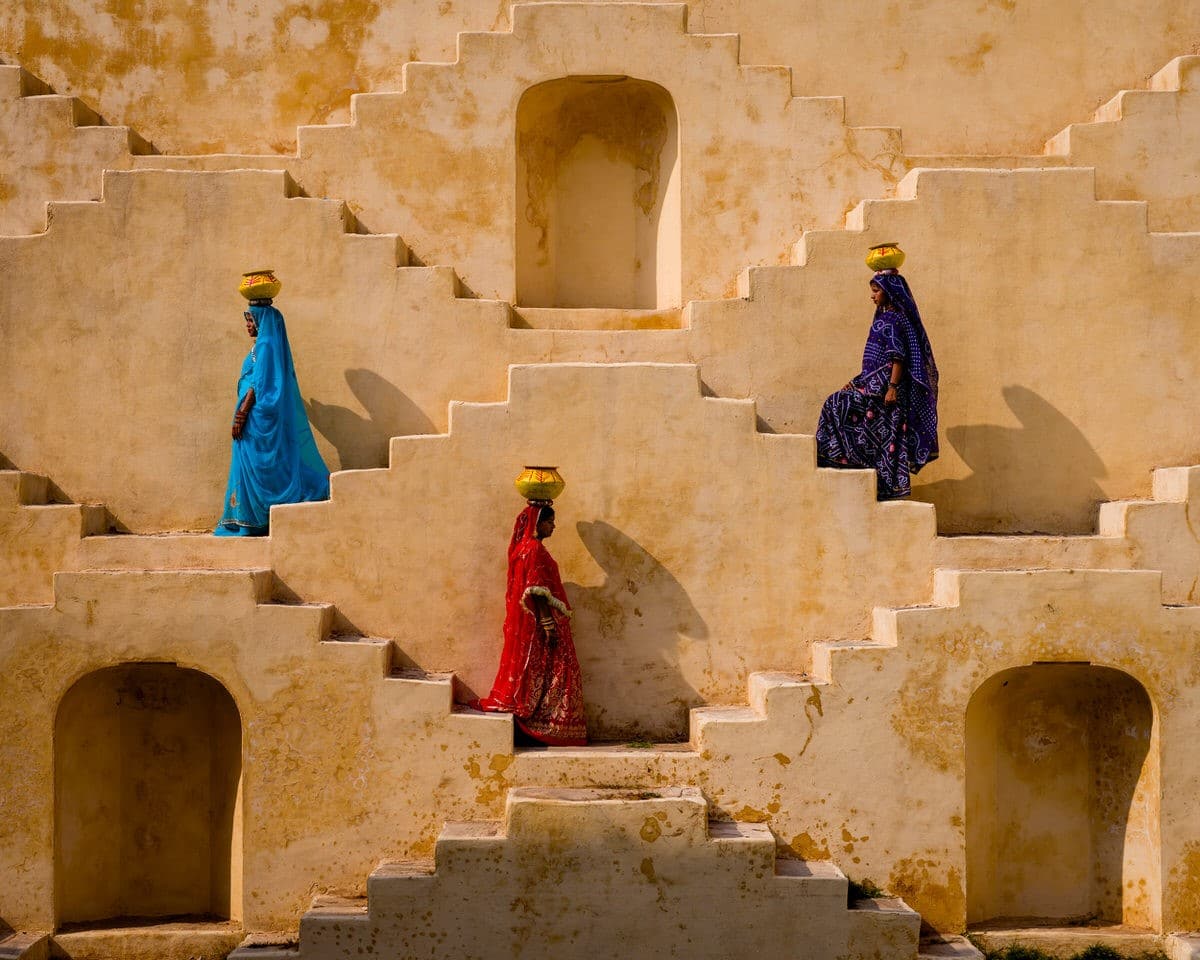
“Infinite Loop” by Barry Crosthwaite. Finalist.Location: Rajasthan, India“Stepwells in Rajasthan, India, boasts a rich history dating back over a thousand years. Initially built to harvest rainwater and provide access to groundwater, they evolved into architectural marvels and communal spaces. Constructed by digging into the earth, these structures were adorned with intricate carvings, serving as both utilitarian and aesthetic symbols. Stepwells facilitated water storage in arid regions, crucial for agriculture, drinking, and rituals. They also served as meeting points, offering respite from the scorching desert heat. Over time, step-wells declined with modernization, but their cultural significance endures, inspiring art, literature, and conservation efforts. Today, they stand as poignant reminders of India’s ingenuity in water management and architectural prowess.”
They also served as meeting points, offering respite from the scorching desert heat.
Today, they stand as poignant reminders of Indias ingenuity in water management and architectural prowess.
The King of South Sudan by Alessandro Bergamini.
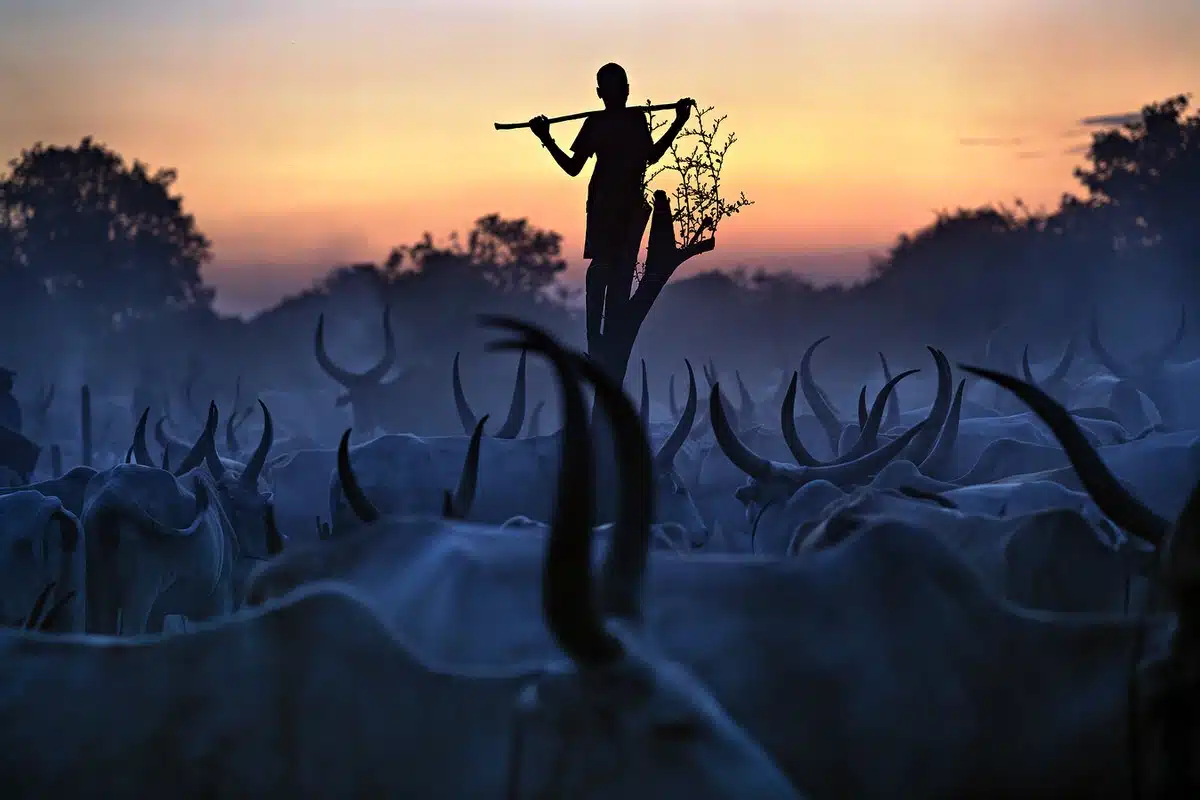
“The King of South Sudan” by Alessandro Bergamini. Finalist.Location: Sudan“The Mundari tribe of South Sudan shares an inseparable bond with their livestock. Due to their isolated location and the country’s instability, their customs have remained largely unchanged over the centuries. The relationship between the herders and their animals is symbiotic, with cattle considered part of the family.”
Finalist.Location: SudanThe Mundari tribe of South Sudan shares an inseparable bond with their livestock.
Due to their isolated location and the countrys instability, their customs have remained largely unchanged over the centuries.
The relationship between the herders and their animals is symbiotic, with cattle considered part of the family.
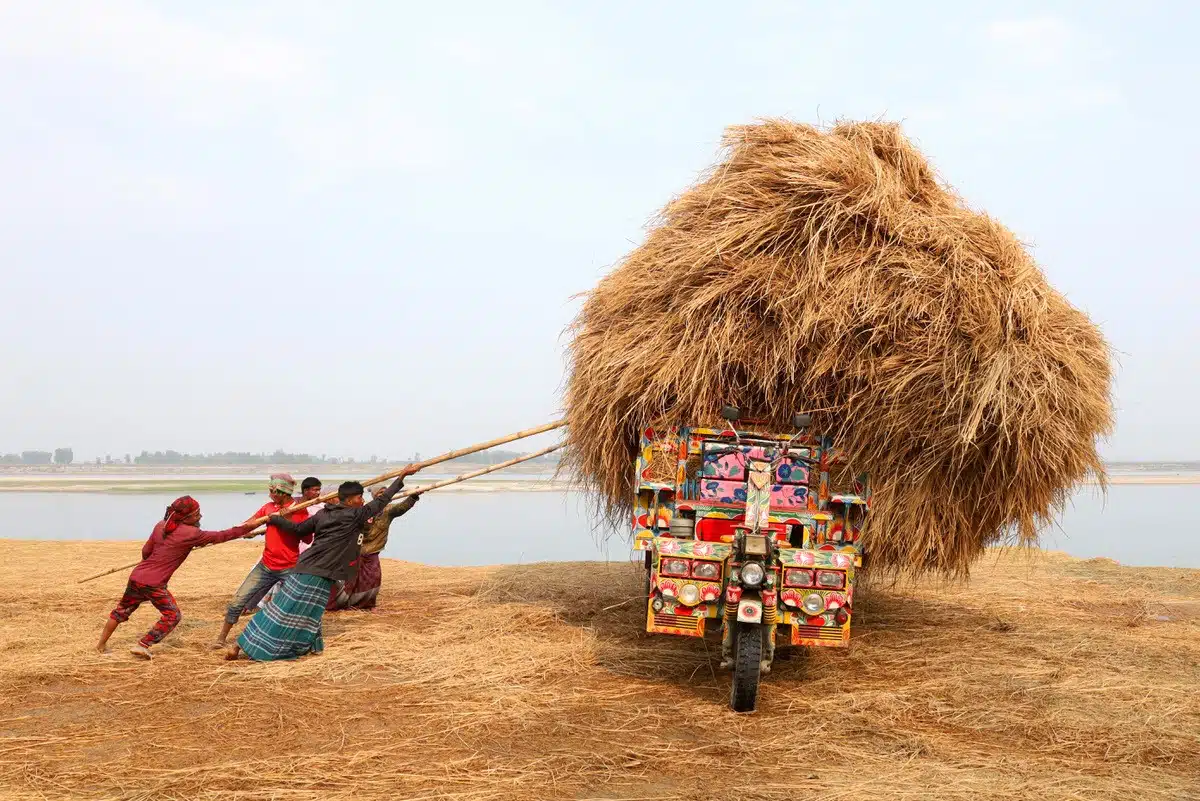
“Paddy straw” by Syed Mahabubul Kader. Finalist.Location: Kazipur Upazila, Bangladesh“A group of workers unload paddy straw from a truck. Rice straw is a by-product for farmers that is used for a variety of purposes including cattle feed and fuel.”
Paddy straw by Syed Mahabubul Kader.
Finalist.Location: Kazipur Upazila, BangladeshA group of workers unload paddy straw from a truck.
Gunja by Sofia Brogi.
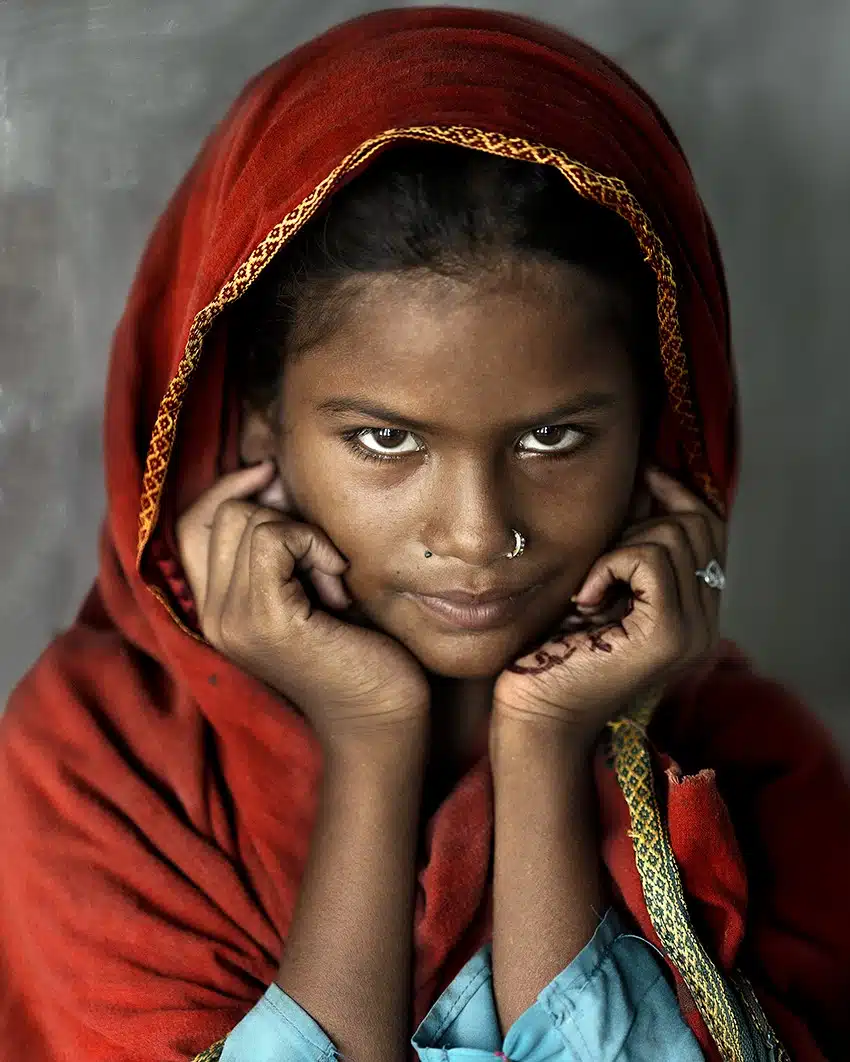
“Gunja” by Sofia Brogi. Finalist.Location: Sarnath, India“She is Gunja, a little girl I met in Sarnath. I met Gunja when she approached me asking if I could buy her some food. She came to eat with me, stayed for a couple of hours, showing me Indian songs on YouTube and eating whatever was put on her plate. Then I met her family, her mother, and her little sisters who, like her, were forced to live on the streets.”
Finalist.Location: Sarnath, IndiaShe is Gunja, a little girl I met in Sarnath.
I met Gunja when she approached me asking if I could buy her some food.
Rainbow Mountain by Nicolas Castermans.
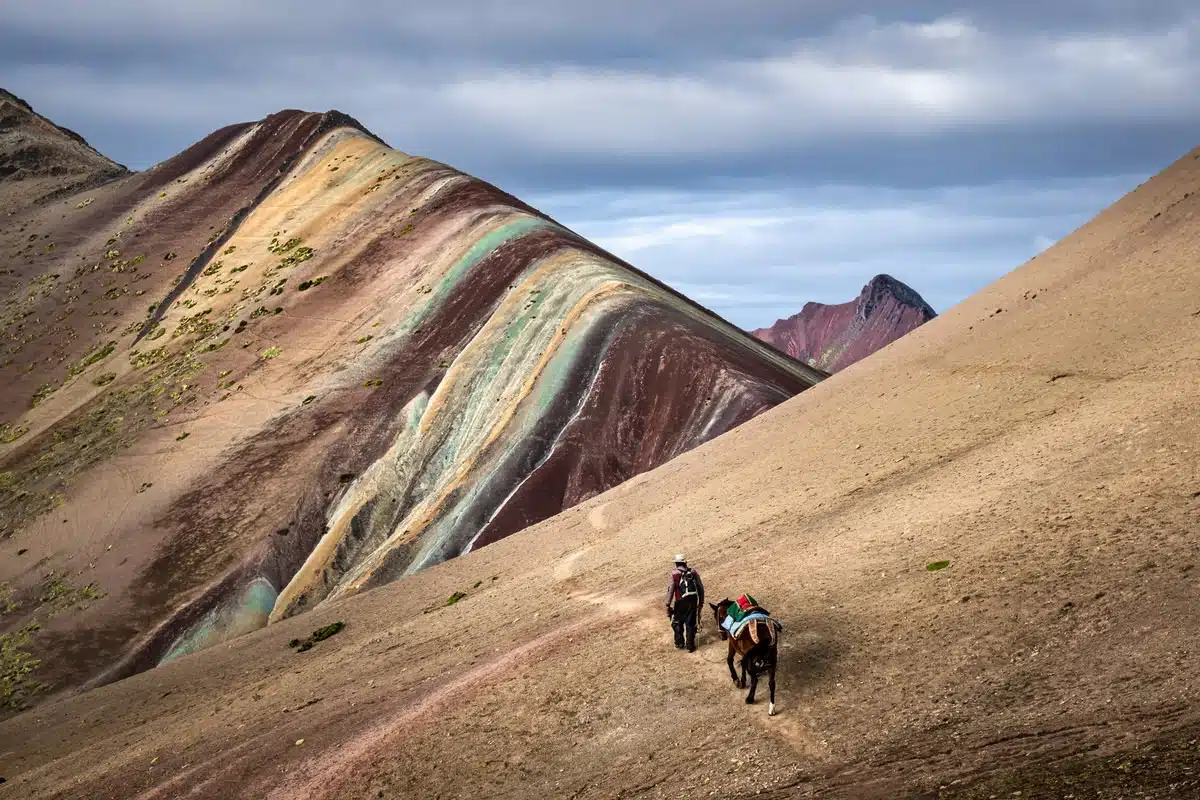
“Rainbow Mountain” by Nicolas Castermans. Finalist.Location: Peruvian Andes“Local horse rider walking towards an amazing 5,000-meter mountain pass next to a Rainbow Mountain in the highlands of the Peruvian Andes.”
Huli Wigmen by Luciano Lejtman.
Related Articles:
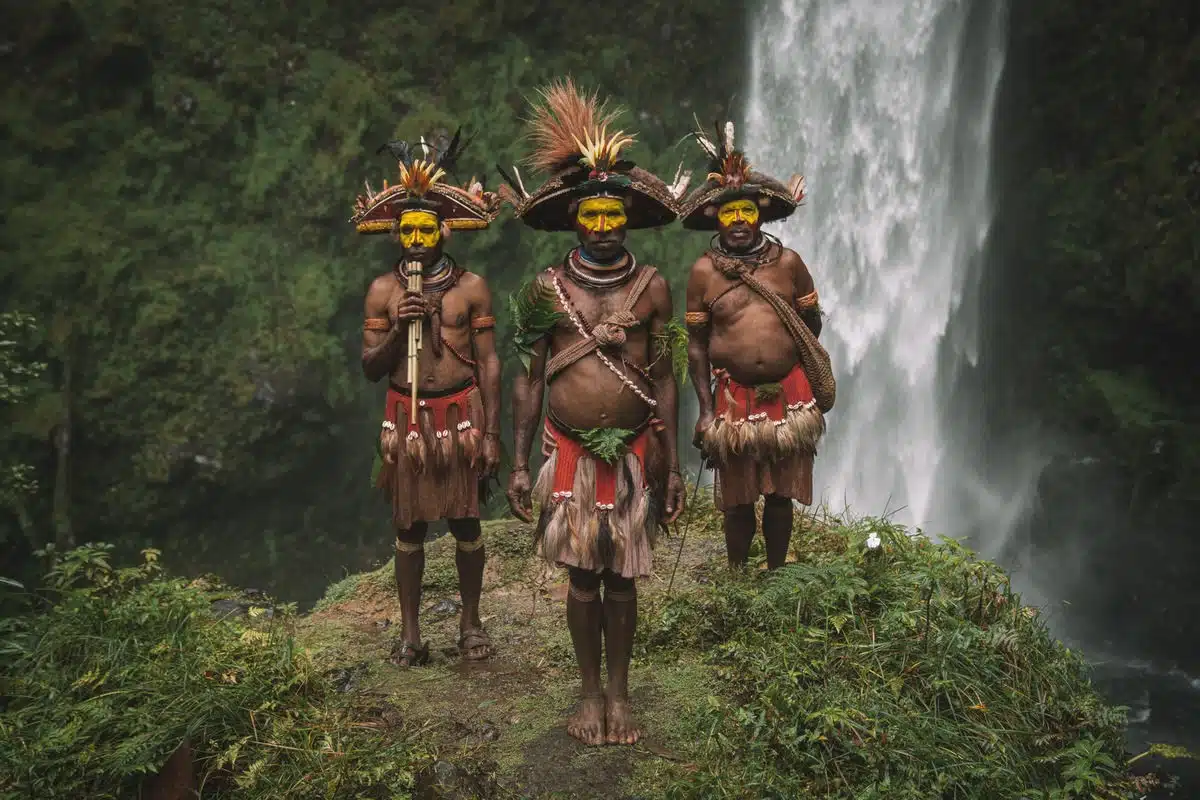
“Huli Wigmen” by Luciano Lejtman. Finalist.Location: Tari, Papua New Guinea“The Huli Wigmen are a proud tribe from the Huli territory in the highlands of Papua New Guinea. The Huli are proud people who believe they descended from one man called Huli, who was a masterful farmer and gave them the rich fertile land they enjoy today in the Huli Territory.”